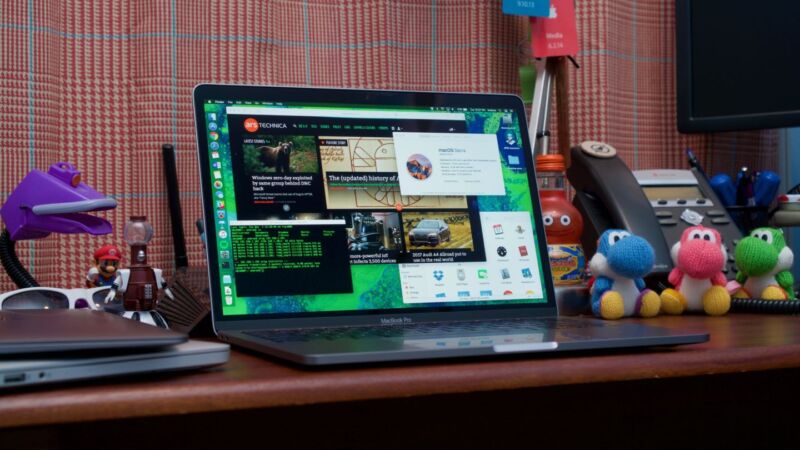
Apple unveiled Ventura, the next major version of macOS, at its Worldwide Developers Conference on Monday. Like most macOS releases, its changes are mostly incremental, but it does include a new multitasking UI called Stage Manager, new Continuity features to help your Mac mesh with your iPhone and iPad, and several redesigned and updated apps.
The bad news is that Ventura drops support for a wide range of Intel Macs. The full compatibility list is below:
- 2017 iMac/iMac Pro and later
- 2018 MacBook Air and later
- 2017 MacBook Pro and later
- 2019 Mac Pro and later
- 2018 Mac mini and later
- 2017 MacBook and later
- 2022 Mac Studio and later
Compared to the compatibility list for Monterey, Apple has dumped all Macs released before 2017, including the 2013 Mac Pro (which it sold until December 2019) and the 2016 MacBook Pro models that introduced the Touch Bar. If your Mac is using an Apple T2 or Apple Silicon chip, you're safe. If you're using an older Intel Mac, Apple is aggressively dropping support for those systems.
If you look at macOS system requirements from before the Apple Silicon transition started, it's clear that Apple has accelerated the pace at which it is dropping older Macs. Both macOS 11 and macOS 12 dropped support for batches of older Macs, but before that Apple had only been making big changes to the support list every other year or so (10.12 and 10.13 supported almost all the same Macs, as did 10.14 and 10.15).
That said, Apple has also dropped many pre-2017 models from the support lists for iOS 16 and iPadOS 16, too—this follows three years where Apple didn't drop support for any iPhones or iPads. It's possible that Apple is providing fewer updates for older devices across the board, unrelated to the Intel-to-Apple-Silicon switch that's happening on the Mac side.
Older Macs that can't run Ventura should still be supported for another two years or so with security updates and new versions of Safari. Apple typically provides updates for the three most recent macOS versions at any given time, so Big Sur and Monterey will both continue to be updated after Ventura comes out in the fall. But those updates don't always patch all of the known security holes in macOS—for the best protection, you should still be running the newest version of macOS whenever possible.
reader comments
197